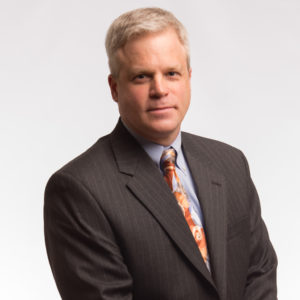Kathy Mazzarella’s ascent to the top post at St. Louis-based electrical distributor Graybar is legendary. She began at the bottom and worked her way up, but that’s only part of the story.
When Mazzarella joined the company in 1980 as a customer service representative, not only was she a woman looking to forge a career in a male-dominated industry, but she didn’t have a college degree. Those two strikes didn’t dismay Mazzarella or Graybar, which took a chance on her and set in motion one of the industry’s most remarkable career paths.
After several years in quotations and sales, she became a sales manager. From there, Mazzarella took on a series of sales, marketing and product manager positions. She eventually held senior vice president roles in human resources, strategic planning, sales and marketing before stepping into the C-suite as COO in 2010.
Just two years after that promotion, Mazzarella was appointed president and CEO, and in 2013 she added chairman to her resume. Now, she is one of only 37 women to lead a Fortune 500 company, and she has helped steer Graybar to $7.3 billion in 2020, up 30% since taking over as chief executive.
Mazzarella, who spoke to attendees at MDM’s recent virtual event, the Future of Distribution Summit, sees a lesson in how Graybar benefited from hiring and promoting Mazzarella even though she didn’t exactly fit the distribution model.
She knows other distributors should be taking similar chances on career hopefuls who might not check the boxes of the traditional distribution applicant.
“If Graybar hadn’t hired me at the age of 19 because I didn’t have a college education, I wouldn’t be president,” she said. “They supported me through my career development to make sure I had the education that I wanted to get. I would have never had this opportunity if they were so narrowly focused that you had to have a four-year education. It’s important for all of us as business leaders to make sure that we don’t define diversity and inclusion too narrow. Let’s open up our eyes and open up our minds, and look at the entire person and all the complexities and all the wonderful things that folks can bring to our organizations if we can tap into their gifts.”
‘It doesn’t make sense why you wouldn’t do this’
Fast forward 41 years and it’s understandable why Mazzarella is adamant about the benefits of tapping into the gifts of what might be an unlikely candidate. She has also been touting the benefits that diversity, equity and inclusion (DEI) can bring to a particular company as well as the broader distribution industry.
Mazzarella said there are at least two reasons why a company should aim for better representation when it comes to gender, race and other demographics.
“By all means, it is the right thing to do — and that’s the primary reason you do this,” she said. “But it also makes good business sense. There have been numerous studies released over the years showing that diverse organizations are more likely to outperform their peer organizations.
“They bring fresh ideas, innovative thinking. They help strengthen the relationships with diverse customers and in their communities. They help us compete for talent, and they help us attract and retain good talent. It also enhances your reputation, both as a business but also as an employer of choice.”
One of the studies that Mazzarella cited was from Deloitte, which made the case for an inclusive culture with some eye-opening statistics.
“Organizations with inclusive cultures are two times more likely to meet or exceed their financial targets,” Mazzarella said. “They’re also three times more likely to be high performing. They’re six times more likely to be innovative and agile. And — here’s the big kicker — they are eight times more likely to achieve better business outcomes.
“I don’t know about you, but it would be really cool to say that we are eight times more likely to perform better than our peers. It’s the right thing to do, but there’s also a pretty strong business case. It doesn’t make sense why you wouldn’t do this.”
For much more from Mazzarella, including her advice on how to begin increasing diversity and inclusion in your company, click here for on-demand access to the Future of Distribution Summit’s presentations and panels.
Related Posts
-
Mazzarella’s rise to the top at Grayber is legendary, and she is out to help…
-
Strategic activity from leading distributors like Ferguson, Grainger and Fastenal led to the most-read blogs…
-
As distributors eye the end of the pandemic, they can prepare their companies for the…






